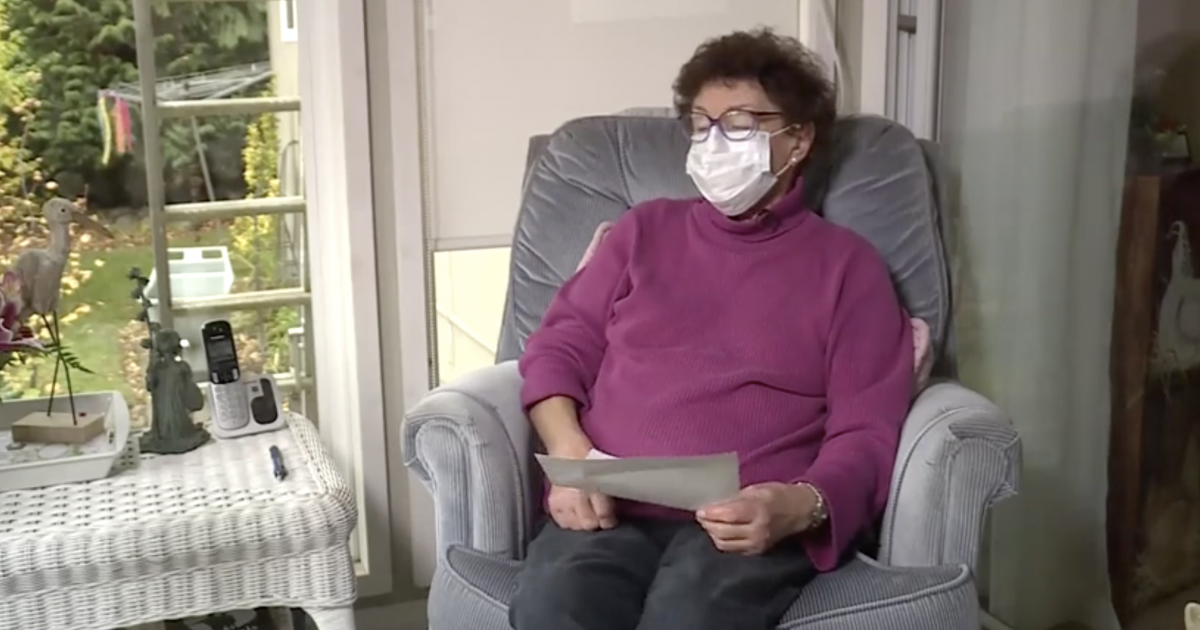"Don't sit by you will be sorry, you will. Don't just sit there thinking I can relax because that's what's cost me my life."
That is the message an 81-year-old great-grandmother from Canada hopes to spread in her final months battling terminal liver cancer.
Read MoreShe finally got an ultrasound in August, but this time the results were much different.
"(The doctor) phoned me and said, 'you better get your affairs in order because it's been misdiagnosed, and it is cancer,' which absolutely floored me," said Jestico. "I couldn't believe it."
In the 21 months since her misdiagnosis, the growth became ten times larger and is now 14cm instead of 1.5cm.
Jestico is a fighter, though, and she was determined to give it her all to try and beat the disease – but in the three months since her terminal diagnosis she says she has been unable to get an appointment to discuss a treatment plan.
"I'm very bitter about the fact that once they established what this was, they didn't move on it right away, but if they had in August, I probably would have stood a chance," said Jestico. “August, September, October, and I haven't even gotten into the cancer clinic yet."
She is now using the time she has left to encourage others to learn from her mistake and get tested or screened if something feels wrong.
"That first year after they discovered it, I should have been rattling the cage saying, 'hey, are you going to check on this?’" noted Jestico. "But COVID hit, and everything was in chaos."
Liver Cancer Symptoms
Liver cancer is difficult to detect because signs and symptoms often do not emerge until the disease has spread to another organ or part of the body.
Diagnosing liver cancer is even further hampered by the fact that many of the symptoms are remarkably similar to the symptoms of most viruses, illnesses, and ailments.
If a person is experiencing a number of these symptoms and something feels off, they should schedule an appointment with their doctor:
- Sudden weight loss
- Loss of appetite
- Feeling bloated after eating
- Nausea or vomiting
- Abdominal pain
- Noticeable swelling or fluid build-up in the abdomen
- Itching
- Jaundice
- Fever
- Bruising
- Visible veins around the lower torso
I Wanted My Doctor To Like Me, Then He Missed My Cancer
Determining Eligibility For Surgery
Margaret Jestico wants to fight her terminal liver cancer diagnosis, but says she cannot even get in the foot at a clinic in her area.
Determining whether or not someone is a candidate for surgery is done on a case-by-case basis and often determined by assessing the overall health of the patient and the extensiveness of the disease.
Some of the factors that determine this are:
- Cancer Location: If the mass of cells is around a sensitive area, such as the bowels and intestines or inside the liver, there is a high probability that surgery would damage the tissue surrounding the cells during surgery, and therefore the disease could be inoperable.
- Heart Disease: Heart diseases like high blood pressure and hypertension, especially in combination with obesity, can lead to many complications during surgery, including infections, blood clots, and heart attack.
- Diabetes and Comorbidities: Diabetes and comorbidities can lead to slow healing of surgical wounds, an increased risk for infections, and heart and kidney complications.
- Age: Younger patients are more likely than older patients to be surgery-eligible. Older patients can sometimes have unique health complications. Elderly patients are at higher risk for the previously mentioned diseases, and they are susceptible to the natural decline of organ function that comes with advanced age.
- Nutrition: Poor nutritional status can contribute to complications during procedures. If the patient does not display proper nutrition, then surgery might not be right for them.
"Decades ago we would take everyone to surgery first," Dr. Elizabeth Jewell, a gynecologic surgeon at Memorial Sloan Kettering Cancer Center previously told Survivor Net.
She said that at the time any patient was admitted if surgery could remove all but less than 1cm of the cancerous cells or tumor.
“Over the years the criteria has changed, and individuals are only eligible for surgery if safe surgery can leave five millimeters of cancer or less inside the body,” said Dr. Jewell. “The ideal situation is if the surgery can leave the patient with no gross residual disease, or no cancerous mass left in the body post.”
Determining Eligibility For Surgery
Learn more about SurvivorNet's rigorous medical review process.


